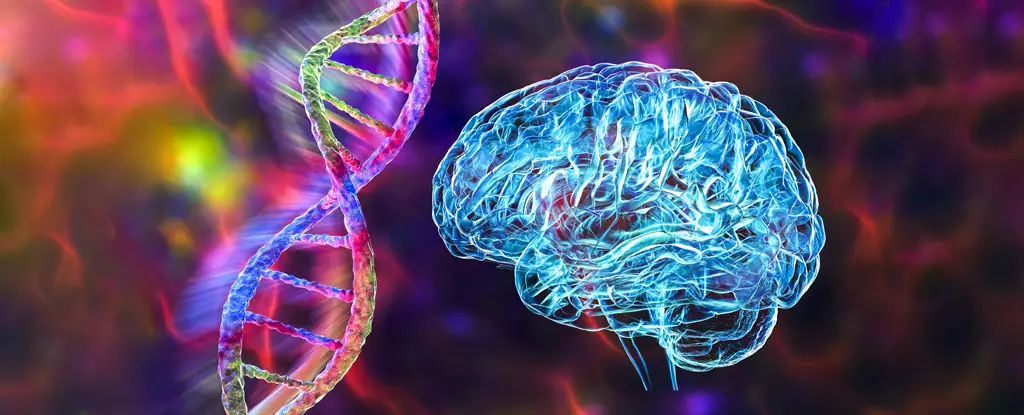Recent advancements in psychiatric genetics have shed light on the intricate web connecting various mental health disorders. A groundbreaking study has revealed that eight distinct psychiatric conditions, including autism, ADHD, schizophrenia, and bipolar disorder, share an underlying genetic foundation. This revelation opens new avenues for understanding the shared etiology of disorders that often co-occur, complicating both diagnosis and treatment.
The collaborative effort of researchers led by Hyejung Won at the University of North Carolina has highlighted the significance of certain genetic variants that manifest during critical periods of brain development. The ability of these variants to remain active for extended periods suggests they may serve as pivotal targets for therapeutic intervention across multiple psychiatric disorders rather than being isolated solutions for individual conditions.
At the heart of these findings lies the discovery that the proteins produced by these shared genetic variants exhibit extensive interactions with other proteins within the brain. This interconnectedness indicates that alterations in these proteins could lead to extensive repercussions throughout neural networks, further complicating our understanding of psychiatric conditions. The implications are profound; a single genetic variation might destabilize a network, triggering a cascade of neurobiological effects and contributing to the manifestation of diverse mental health issues.
The study builds upon a 2019 initiative in which researchers identified 109 genes associated with these eight psychiatric disorders. Notably, about 70% of individuals diagnosed with one condition may also present symptoms of another, exemplifying the overlapping nature of these disorders. Such interrelation poses a challenge for clinicians who often navigate a grey area of symptomatology rather than clear-cut classifications.
In their research, Won and colleagues meticulously analyzed a dataset comprising nearly 18,000 genetic variations to discern the influence of both shared and unique genetic factors on neuronal precursor cells. Their findings revealed 683 genetic variants that affect gene regulation during human brain development. This analytical framework provides a deeper understanding of how shared genetic variants influence gene expression dynamics, which can be critical in the emergence of psychiatric disorders.
The study draws attention to the concept of pleiotropy—where genetic variants influence multiple very different traits. The pleiotropic genetic variants appeared to foster a higher degree of protein-to-protein interactions compared to those variants that were unique to specific disorders. This propensity for interaction contributes to the notion that certain genetic profiles may predispose individuals to a range of psychiatric issues, as these genes regulate various stages of brain development.
Traditionally, pleiotropy has posed significant obstacles in the classification of mental health conditions, muddying the diagnostic waters for healthcare professionals. However, ongoing research underscores the potential for a paradigm shift in how we conceptualize psychiatric disorders. Acknowledging the interconnectedness of genetic underpinnings may pave the way for more integrative treatment approaches, ultimately enhancing patient outcomes and refining therapeutic strategies.
The exploration of shared genetic variants across psychiatric disorders not only enriches our understanding of mental health but also emphasizes the need for collaborative research that transcends traditional boundaries. These findings could significantly alter the landscape of psychiatric treatment, promising new strategies for managing the complex interplay of conditions that affect millions worldwide.



Leave a Reply